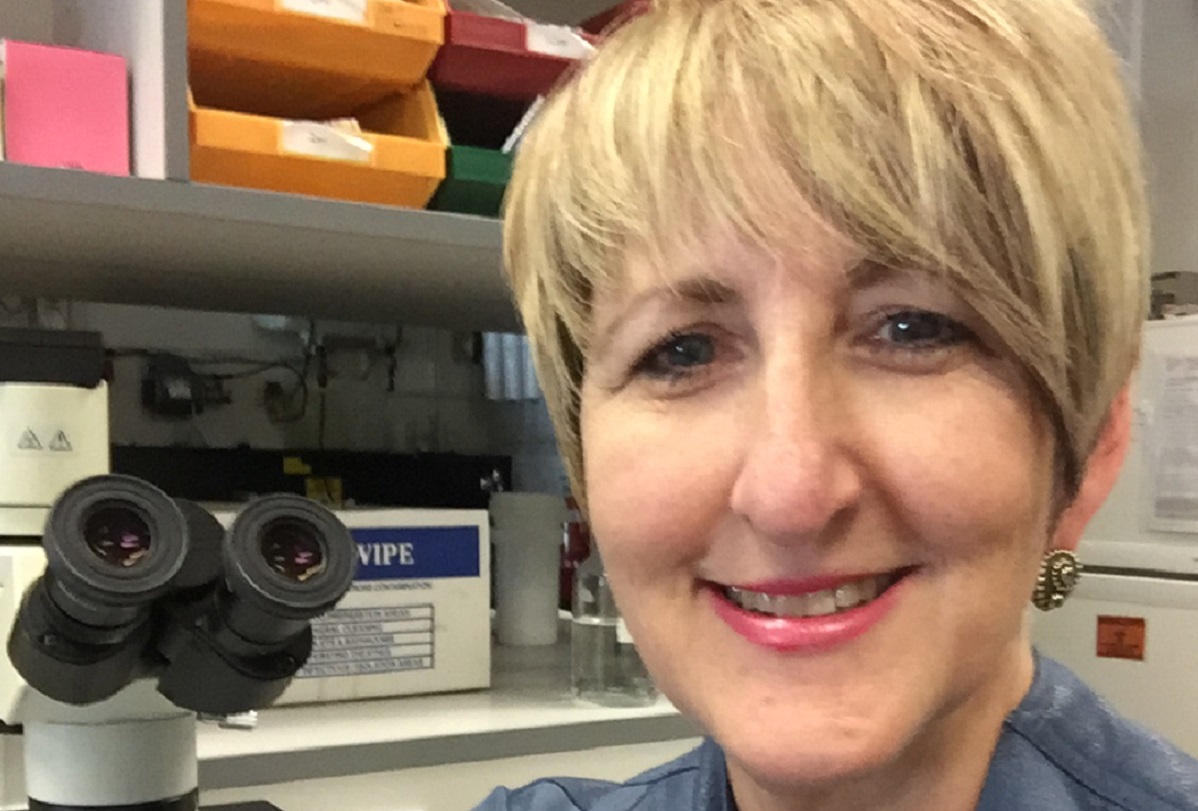
The COVID-19 situation has brought challenges in research and teaching for everyone including Associate Professor Bryone Kuss, head of clinical and laboratory haematology and academic lead for molecular medicine and genetics at Flinders University, but has also presented valuable learning experiences for students.
What inspired you towards the field of Haematology?
I knew from internship that this was what I wanted to do. I served on haematology as a 6th year medical student, then again in internship and applied for internal medicine training with the intention of doing haematology. The head of haematology at the RAH was a generous clinician and an encouraging leader. I liked his style of leadership and his ability to foster primary research. I liked the holistic capacity of haematology: from bench to bedside and back again.
How does your work benefit the wider community?
When I started I worked hard to gain recognition in the area of clinical trials. We now have a strong clinical team and trials team that enables us to bring new therapeutics to our community that they would not otherwise have access to for many years through the PBS, therefore bringing cutting edge medicine to our patients.
Our primary research helps to put Flinders on the national and international stage and this brings more opportunities in clinical trials and other aspects of diagnostic medicine way ahead of other units in Australia.
What has been your proudest moment as a clinician?
Being thanked by my patients and their relatives for giving them an opportunity for a better quality of life, even after the struggle has been lost.
What has been your most challenging moment?
Maintaining my focus and courage to do the best for our patients even in the face of an error or adversity.
What does a normal day look like for you?
Emails at 7am, wash dishes, clean up the kitchen, put the dog out, dress and get to work, take calls with my staff on the way to work. Arrive at work where every day is different with different demands and challenges coming constantly from staff, registrars, the laboratory, the clinic and hospital administration. Cup of tea, a biscuit in my office, more emails, at least two meetings, see students, respond to document deadlines and university matters… Finally get some time to think at 5pm – chase results, ring patients, and walk out the door somewhere between 6 and 7.30pm. Get home cook tea, see my family, collapse on the couch for two hours, go to bed, check emails and complete documents for my research then fall asleep. Then start all over again then next morning!
How has COVID-19 changed your work life?
I have not always gone into work, which saves me 90 minutes travel time.
Employment of the new IT TEAMS platform has enabled my department to continue working and supporting each other in a collaborative environment with multidisciplinary team meetings. We have risen to the challenge of meeting but maintaining distance by utilising various new software packages for example one that enables us to conduct a morphology meeting by transferring microscope images when reviewing bone marrows and blood films from the microscope to the computer in our offices or homes.
The workload has increased with many more meetings and things to consider. As I oversee a nine week teaching block for the Flinders MD course, I have been required to rethink our teaching strategies and delivery utilising recorded lectures, live streamed lectures and practicals and to develop new ways to engage students while in their homes. Converting our courses to full on-line delivery has had many challenges.
If there is one piece of advice you could give to current medical / health-related students about this pandemic, what would it be?
Watch, listen and learn – this will not be the last time this happens to humanity and the next time it happens, you will be in the trenches. Make sure to take note what has happened and consider a role in advocacy for vaccine development, crisis strategy development before you need it, not only when you need it and take an interest in public health and policy. Also, look after the mental health of yourself and your colleagues in the process.
What are you keen to do when we’ve come through the ‘other side’ of COVID-19?
Take a holiday with my toes in warm sand knowing the world is safe for a while and I don’t need to be on high alert every moment.

